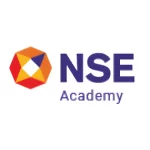Deloitte India, in partnership with the Confederation of Indian Industry (CII), has released the 12th Annual Status of Higher Education (ASHE) Report 2024, highlighting significant transformations in India’s higher education sector. The report calls for policy reforms, digital integration, and advanced skill development programmes to bridge the gap between academics and industry needs. The Key findings underscore the entry of foreign universities in India, which promises to improve educational standards and expand opportunities for Indian students.
The study also emphasizes the importance of an outcome-based education model that aligns academic programs with global job market demands and dual degree programs that allow students to earn credentials from both Indian and international institutions, thereby increasing flexibility and global exposure.
The research discusses two crucial frameworks: the National Higher Education Qualification Framework (NHEQF) and the National Credit Framework (NCrF). The NHEQF aims to standardize qualifications and increase global credibility, while the NCrF facilitates credit transfers between institutions, allowing more flexible and personalized learning pathways. These frameworks create a more standardized, globally competitive education system, supporting cross-border collaboration and reinforcing India’s role as a global education leader. The report includes data from India and state profiles in higher education.
Key Highlights of the ASHE 2024 Report
Global Expansion and Educational Exchange
India’s higher education sector is expanding internationally, with Indian universities establishing campuses abroad and top foreign institutions entering the Indian market. This shift enhances cross-border research, faculty exchange, and collaborative learning opportunities, strengthening India’s presence in the global education ecosystem.
Policy and Framework Advancements – NHEQF and NCrF
The NHEQF is a structured framework that standardizes higher education qualifications and learning outcomes across Indian institutions. It aims to provide an idea of what the students should know and be able to do when completing their educational courses, ranging from certificate courses to doctoral programmes.
Key features of NHEQF include:
Standardization of qualifications
Clear guidelines for each qualification level ensure consistency across institutions. This transparency helps students, educators, and employers understand the knowledge, skills, and competencies that each qualification signifies.
Flexible learning pathways
The guidelines offer multiple entry and exit points, i.e., students can enter, pause, or exit the education system based on their needs. For example, if a student leaves a programme early, a certificate or diploma can still be earned based on completed credits.
Flexible credit accumulation and transfer
This approach allows students to transfer credits between institutions, making education more accessible and adaptable.
Focus on competencies
The framework focuses on competencies and outcomes rather than syllabi and inputs, preparing students for self-employment and the job market.
Global alignment
NHEQF enhances the global recognition of Indian qualifications as it aligns with international education standards.
Quality assurance
NHEQF helps maintain education quality across institutions, improving the credibility of India’s higher education system.
NCrF: Valuing education, skills and experience and creating flexibility3
NCrF aims to integrate and standardize credit accumulation and transfer across various educational and learning forms in India, including academic, vocational, and experiential learning, such as internships and apprenticeships. It offers flexibility by allowing students to earn credits through formal and non-formal learning. These credits can be accumulated, transferred between institutions, and used to re-enter education at different stages. Key features include:
Credit-based learning
Students can earn credits from academic courses, vocational training, and experiential learning credits, which are easily transferrable across institutions.
Recognition of Prior Learning (RPL)
Students’ skills and knowledge gained from non-traditional academic settings, such as work experience or vocational training is acknowledged.
Multiple entry and exit points
Students can enter or exit programmes at various stages based on their career goals. For example, a student may pursue a diploma, accumulate credits, and later return to complete a degree.
Lifelong learning
Learners are encouraged to engage in continuous education, enabling them to return to the education system anytime for upskilling or reskilling.
Bridging academic and vocational training
Students can integrate vocational and educational qualifications, facilitating easier transitions between the two and making education more inclusive.
Dual Degrees in Higher Education
According to the UGC guidelines regarding dual degrees for students, eligible students can opt for two degrees simultaneously. Students can also pursue degrees and diplomas together. The courses could be undertaken in various modes, including in-person, open-distance learning, online, or hybrid learning. They may also be pursued at different universities, including approved foreign ones.
A dual-degree education has several advantages. It provides more career options and a broader base of competencies than a single course, preparing students to take on jobs or start a business independently. Many innovations arise at the intersections of different disciplines, so dual-degree education is expected to promote research and innovation. Universities are expected to quickly and widely implement this policy for the policy to achieve its intended goals.
Rankings and Quality Standards
University and college rankings have emerged as important tools for assessing and benchmarking academic institutions’ performance in today’s highly competitive global education landscape. These rankings provide data-driven insights into the quality and reputation of universities, helping guide the decisions of key stakeholders such as students, faculty, policymakers, and institutional leaders. The value of such ranking frameworks becomes more critical in India because higher education remains central to the country’s knowledge economy. The report examines accreditation systems like the National Institutional Ranking Framework (NIRF) and National Assessment and Accreditation Council (NAAC), as well as global benchmarks, to enhance transparency and align Indian institutions with international standards.
Focus on Access, Inclusion, and GER Improvement
The report highlights the importance of expanding access to higher education and improving the Gross Enrolment Ratio (GER), suggesting steps to increase institutional capacity, create new educational opportunities, and support non-traditional learning pathways.
The ASHE 2024 report envisions a flexible, inclusive educational ecosystem that integrates technology and strengthens industry partnerships, equipping students with future-ready skills. Through these strategic shifts, India can enhance its global competitive edge and establish itself as a leader in education.
About Deloitte India
Deloitte is a leading global provider of audit and assurance, consulting, financial advisory, risk advisory, tax, and related services. With more than 175 years of hard work and commitment to making a real difference, our organization has grown in scale and diversity, with approximately 415,000 people in 150 countries and territories providing these services—yet our shared culture remains the same. The organization serves four out of five Fortune Global 500® companies.


